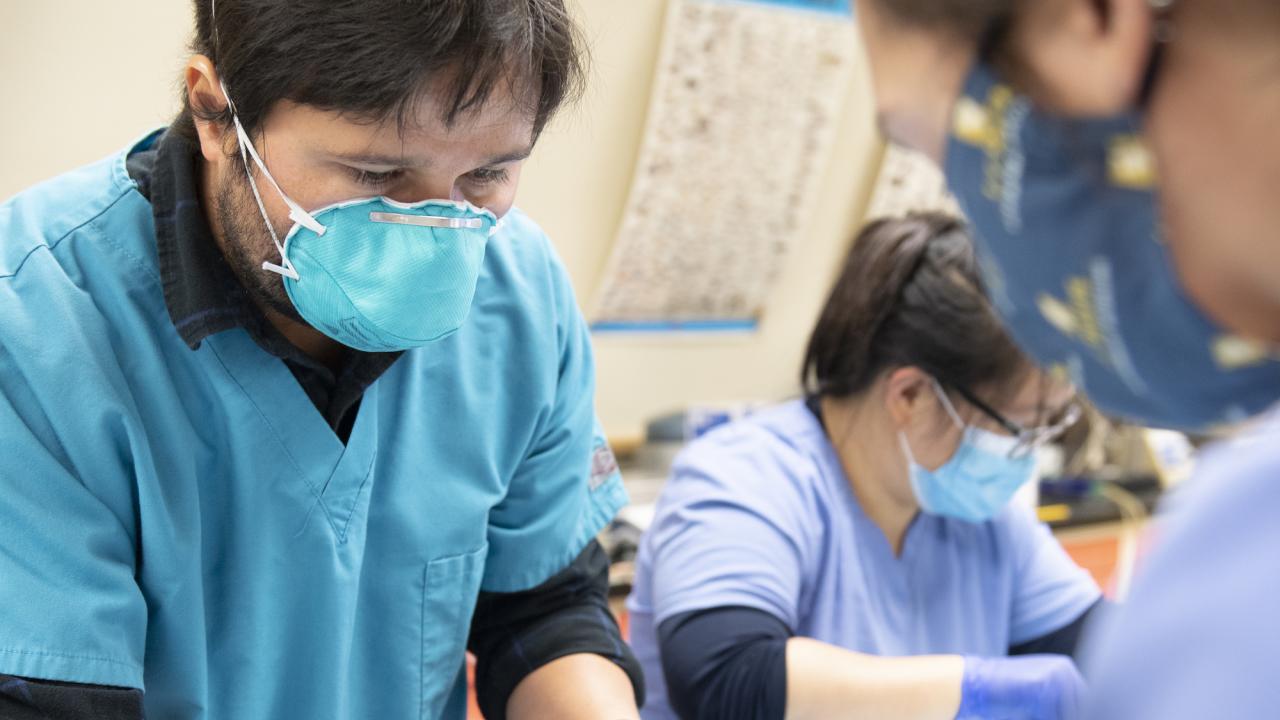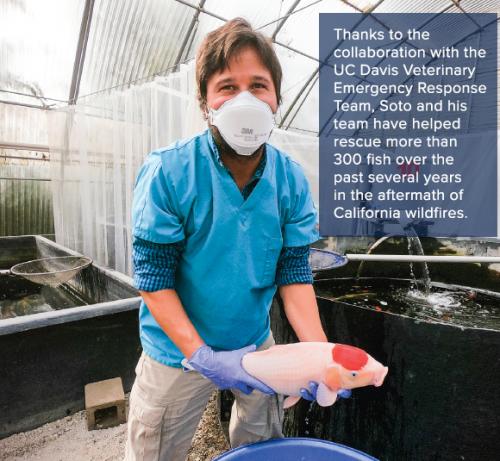
A Week in the Life

A Champion for Aquatic Health
Being near water has always held a strong attraction for Dr. Esteban Soto – whether that’s the ocean, a lake, or a river. Born and raised in Costa Rica, he grew up fishing, surfing and diving. You could say he took to pursuing a career in aquatic health like a fish takes to water.
During veterinary school in his home country, Soto chose to focus a required research project on categorizing tilapia diseases under the mentorship of veterinary pathologist Dr. Juan A. Morales. That same year, an economically devastating outbreak of bacterial disease in cultured tilapia hit his beloved Costa Rica, the second largest exporter of tilapia to the United States at that time. Health experts were brought in from the U.S., including Mississippi State University’s (MS State) Dr. Michael Mauel.
Soto had worked with him for a few weeks when Mauel offered Soto the opportunity to pursue further research while working on a master's degree at MS State. In 2005, Soto came to the U.S. to work in the Thad Cochran National Warmwater Aquaculture Center in the Mississippi Delta where approximately 90% of U.S. aquaculture is based. During his time there, under the mentorship of Drs. Mark Lawrence, Al Camus, Patricia Gaunt, and Mauel, Soto developed a passion for microbiology. That led to pursuing a PhD in Dr. John Hawke’s laboratory at Louisiana State University, where he studied the bacteria that had led to the Costa Rica outbreak.
“I wanted to give something back to where I’d come from,” Soto said. “It is not easy for Latin American students to find support to study abroad, so every time I have the opportunity to help future Latin scientists, I do. I have been blessed with tremendous training opportunities by mentors who are now colleagues, and I feel obliged to offer those same opportunities to my students.”
Thanks to a succession of great mentors, and the continuous support from his parents who both work in human medicine, Soto developed a niche of studying infectious disease in aquatic animals. That expertise brought him to UC Davis in 2015 where he now serves as professor of Aquatic Animal Health in the Department of Medicine and Epidemiology.
No two days are alike, and that’s what keeps it interesting, Soto said. He rotates his time between teaching students in small group settings, lecturing to large classes, seeing fish patients in the Companion Exotic Animal Medicine and Surgery Service, assisting the ornamental and food-fish aquaculture sector, and conducting fish-health related research in the laboratory. With strong collaborators in the California Department of Fish and Wildlife (CDFW), Steinhart Aquarium, Hubbs SeaWorld Research Institute and Monterey Bay Aquarium, Soto continues to energize the UC Davis Aquatic Animal Health Program, providing training and research opportunities to UC Davis students and residents.
In the past couple of years, Soto has even participated in the rescue of goldfish and koi from the aftermath of devastating wildfires – not something he’d ever imagined he would do when he entered the veterinary profession. But when Dr. John Madigan, renowned for rescuing animals in emergency situations, called on a Friday night seeking Soto’s help with a group of koi stranded after the Camp Fire, Soto and his lab members jumped into action. Thanks to the collaboration with the UC Davis Veterinary Emergency Response Team, Soto and his team have helped rescue more than 300 fish over the past several years.
“There were a lot of people – even at the vet school – that didn’t know what we do,” Soto said. “That experience helped bring more awareness about the expertise we have in fish medicine at UC Davis.”
California offers a wealth of diverse opportunities for Soto and his students – from experiences in fresh water and marine aquaculture to hatchery systems; collaborating with the CDFW; working with koi and goldfish hobbyists; and practicing conservation medicine with aquariums and places like the Marine Mammal Center in Northern California.
“UC Davis is a great place for fellows, residents, grad students and veterinary students interested in aquatic health,” Soto said. “One of the most fulfilling aspects of my job is to provide mentees the same type of support I received — freedom and opportunities to pursue professional interests and move along in their careers. It’s fun to see them grow personally and professionally.”

